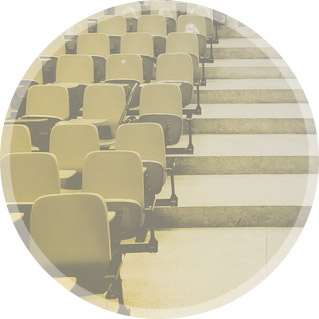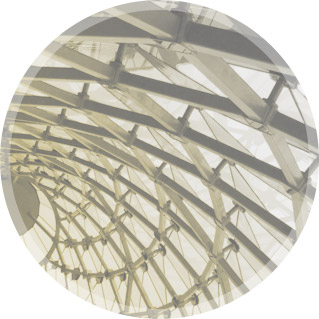Polytechnic University of Puerto Rico
The New School of Architecture

Setting
ARQPOLI, the School of Architecture at the Polytechnic University of Puerto Rico, joined the undergraduate program in 1995. Housed in a compact urban campus in San Juan, UPPR is the largest Hispanic-serving engineering school in the United States, with more than 5,000 Puerto Rican, foreign and transfer students. The extended architectural legacy of the Caribbean has been an invaluable resource for the architecture program, but it is the refocusing of the Caribbean from a geographical location to a translocal cultural condition that drives the school's current development.
School Philosophy
ARQPOLI encourages individuals to acquire the knowledge, skills and social responsibility fundamental to a discipline concerned with the betterment of the human condition and the physical environment. By expounding an understanding of historical processes, examining the Caribbean as a paradigm of dynamic order and contesting technology as scaled down to culture, students relate architecture to ever-present social predicaments. The School empowers students to exercise their potential for service, collaboration, productivity, leadership and civic engagement by validating design and research as interdependent activities, promoting an interdisciplinary interest in related fields, rendering the profession as an accessible goal, and articulating pedagogical strategies accordingly. Today, the School revalidates its ongoing experiment with the unusual, openly assuming its primary goal of bringing a critical edge to the local and international architectural practice and discourse.

Programs
Undergraduate Program: With its five-year professional degree as the main offering, the School is fully committed to an undergraduate curriculum that addresses multidisciplinary as well as local and international concerns. Pedagogical sedimentation, simultaneous and continued exposure to all areas related to architecture begins at the freshman level and continues throughout the length of the program. Concurrency of learning grants students a more integrated experience. With the design sequence as datum, each year becomes an opportunity to deeply address a wide variety of problems. The first-year curriculum exposes students to a wide array of areas of concern: Design, History, Theory, Technology, and Architectural Representation. The second year integrates issues of programming as a design tool, transformation through composition and typological assessment of informal spatial patterns. The history/theory sequence includes an introductory course that exposes students to cultural, compositional, technological and symbolic aspects of architecture, and a series of courses focusing on subjects like the history of architectural theory, the condition of modernity and modern architecture, the Caribbean context from a sociological and cultural-studies perspective, historiography and the neo-avant-gardes. A mid career research, an investigation focused on a freely chosen topic, is a requirement in the third year. Issues of conservation and sustainability are explored in third year design courses. The fourth year addresses urban concerns and housing with a scope that spans from regional considerations to contemporary strategies of infill. A fifth year capstone project synthesizes theoretical, design, technological and representation dexterity. The curriculum profits specifically from the conflicting contexts of North, Central and South America, and the tangible tensions in both, historical and contemporary architecture, that are an important part of the Caribbean condition. Discussions on technological development, the legal context of architecture and the management infrastructure of a design firm are covered in the design and technology/practice sequences of the curriculum.

of Focus
1. Building Technologies
2. Community Design
3. Historic Preservation
4. History | Theory | Criticism
5. Interior Design
6. Materials and Construction
7. Urbanism

Opportunities

Facilities

Policies
Transfer Policies
The Validation Official refers to the credits established by the Academic Council to validate courses and to the equivalency tables followed by the Department Director.
The Validation Official has the authority to validate the first three years of studies, but specialization courses fall on the Department Director.
Validation Instructions:
1. The equivalence of submitted credits is made according to course content and credits.
2. Courses approved with a D grade are not validated
3. The following acronyms are used in validation:
– CE / Course Exemption – course is validated; transcript shows proof of student’s knowledge of the subject matter.
– T / Transfer – validated courses from other institutions.


